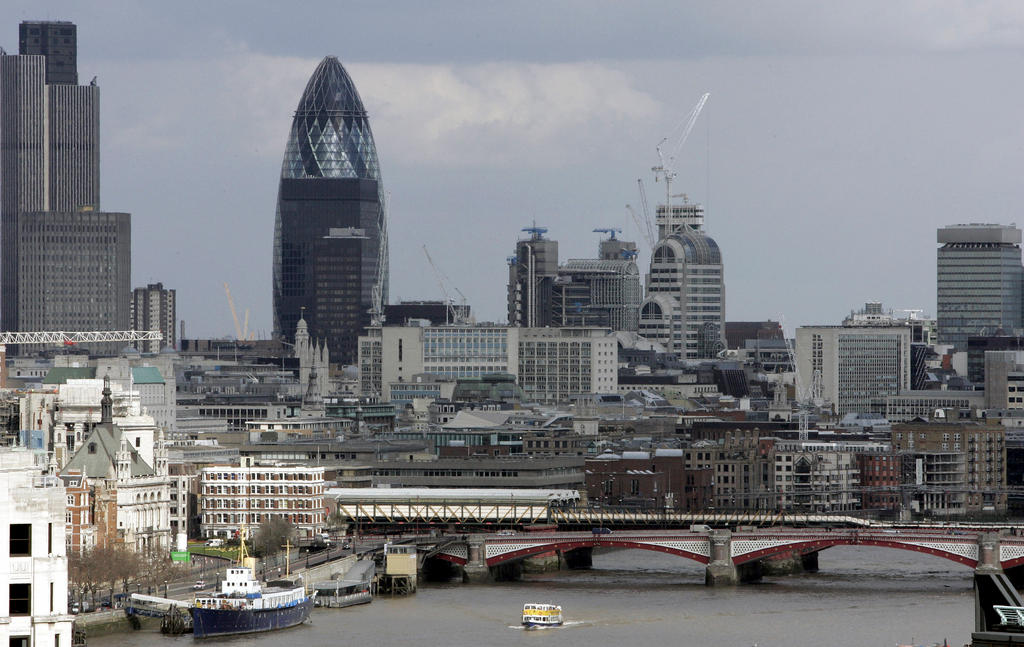Switzerland is ‘open’ to Britain rejoining EFTA

Switzerland would welcome Britain, its sixth biggest trading partner, back into the European Free Trade Association (EFTA) when it leaves the European Union, Swiss President Johann Schneider-Ammann said on Monday.
“It told my colleagues if the UK approaches EFTA to explore the possibility of joining EFTA, Switzerland would be open to discussions,” Schneider-Ammann told reporters in Geneva following an EFTA ministerial meeting.
The Swiss president said another solution would be a free trade agreement between Britain and EFTA, the small club of nations – Norway, Iceland, Liechtenstein and Switzerland – that has access to the European single market without being part of the EU. Or failing that a country-to-country deal could be possible, he added.
“Switzerland wants to avoid a legal void when the UK leaves the EU,” he said. “Therefore all options are open.”
Schneider reminded that Britain had not filed any candidacy with EFTA so far. Britain was a co-founder of EFTA in 1960 and left in 1972 to join what was then the European Economic Community, renamed the European Community, which was integrated into the EU.
Britain voted on June 23 to leave the EU. The terms of the divorce are unlikely to be agreed for at least two years, but investors are growing concerned that Prime Minister Theresa May is heading towards a “hard Brexit”, or a clean break from the EU’s lucrative single market.
Some Brexit supporters have suggested that EFTA would be one way of retaining access to the single market while honouring the referendum mandate to leave the EU.
Last month Iceland’s Foreign Minister Lilja Alfredsdottir gave a positive signal about welcoming Britain, its biggest trading partner, back into EFTA. Norway’s official position is unclear, however. In August Prime Minister Erna Solberg told Reuters she saw some advantages if Britain joins EFTA after quitting the EU. But others have expressed concerns that in doing so it might usurp Norway’s dominance of the small club or demand changes to the terms of the agreement.
India
As well as discussing the possible consequences of Britain leaving the EU, EFTA ministers reiterated their keen interest in concluding free trade agreements with India and Indonesia in 2017.
“Concluding these two agreements would secure improved market access to two growing economies with large domestic markets and constitutes a key objective for EFTA,” the organization said in a statement.
“India is a priority for us,” said Schneider-Ammann. “Negotiations are rather promising. After almost three years we are restarting the negotiations and head negotiators are in place on either side and have met and established a calendar to make progress.”
He said negotiations were stopped in 2014 due to elections in India but also because of differences over intellectual property issues.
“Since then we’ve worked a lot and Swiss pharmaceutical industry has made clear its demands and the Indian side has taken note,” he declared. “We are talking in the coming weeks. Within EFTA I noticed that we should be able to conclude the negotiations before the end of next year. We need to make people aware our ambitions in order to be able to make progress.”

In compliance with the JTI standards
More: SWI swissinfo.ch certified by the Journalism Trust Initiative

You can find an overview of ongoing debates with our journalists here. Please join us!
If you want to start a conversation about a topic raised in this article or want to report factual errors, email us at english@swissinfo.ch.